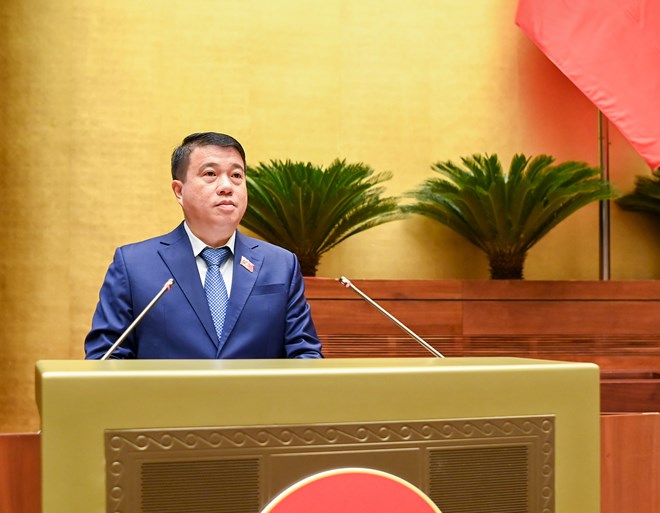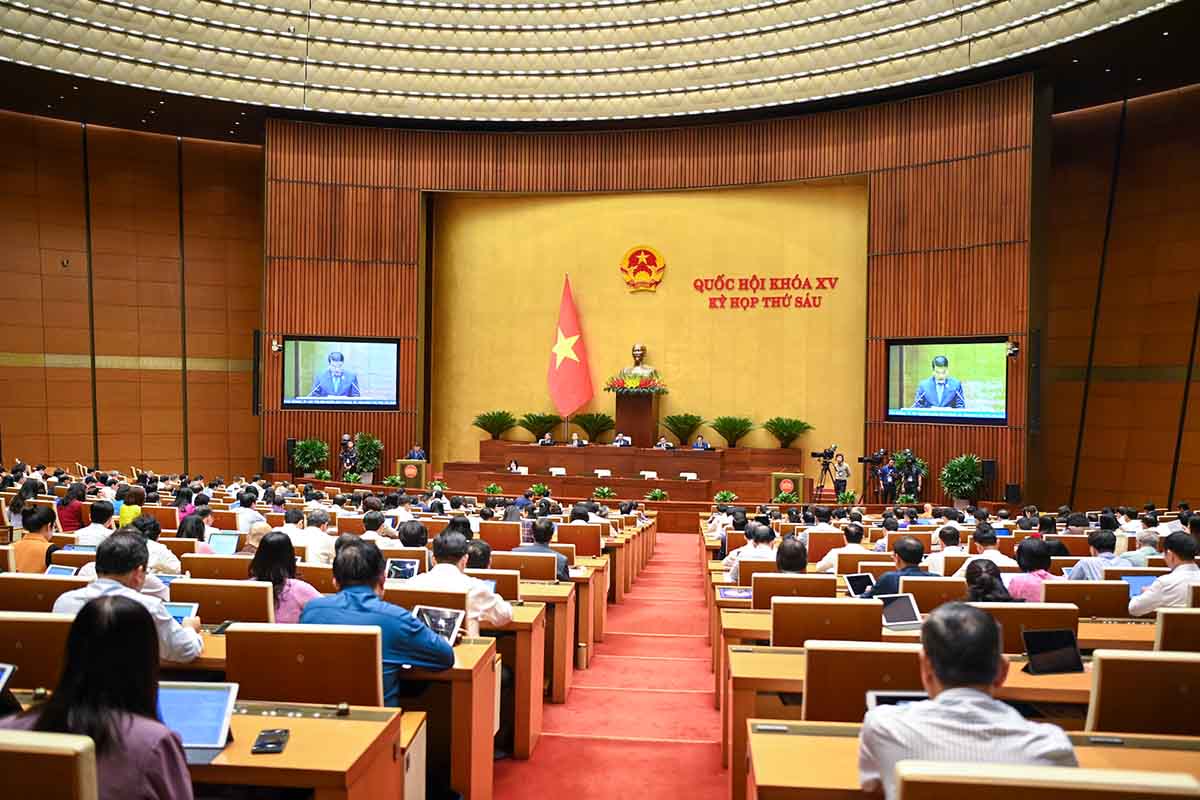
Slow disbursement is a matter of great concern.
Continuing the 6th session, on the morning of October 30, Chairman of the National Assembly's Ethnic Council, Deputy Head of the National Assembly's Supervisory Delegation Y Thanh Ha Nie Kdam reported on the implementation of the National Assembly's Resolutions on national target programs.
According to Mr. Y Thanh Ha Nie Kdam, this is the first time the National Assembly has conducted mid-term supervision, at the same time with 3 national target programs for the 2021-2025 period (target programs), with a wide scope, along with innovation requirements, the supervision delegation has solved many tasks, a large amount of work with appropriate new approaches and methods.
The monitoring team has established and assigned working groups and delegations to directly monitor the Government, 11 ministries, branches and 15 provinces representing regions and levels of program benefits.
Regarding the new rural program, approved by the National Assembly in Resolution No. 25/2021/QH15 dated July 28, 2021, the total minimum budget is VND 196,332 billion. However, the slow allocation of central budget development investment capital and the high counterpart rate cause difficulties for some localities, especially poor provinces.
The disbursement progress of central budget capital in 2022 and the 2021-2025 period is still slow compared to requirements, especially career capital. By June 30, 2023, only 9.17% of the year's capital plan had been disbursed.
Mobilizing resources from people and businesses to participate in new rural construction is limited, mainly from contributing labor and donating land for road construction.
The results of new rural construction are not uniform and not really sustainable; some localities lack determination and show signs of slowing down in directing the implementation of new rural construction.
Regarding the poverty reduction program, the National Assembly approved the investment policy in Resolution No. 24/2021/QH15, with a total minimum capital of VND 75,000 billion. There are 48 provinces using State budget capital.
Central budget allocation is still slow; some localities have low counterpart capital allocation; capital integration still has many difficulties and problems; policy credit capital is not allocated to support poverty reduction such as ethnic minority and mountainous area programs.
Disbursement of central budget capital in 2022 (up to January 31, 2023) reached 35.63% of the plan; disbursement of public investment capital in 2022 extended to 2023 reached 53% of the plan...

Regarding the ethnic minority program, the National Assembly approved the Investment Policy in Resolution No. 120/2020/QH14 dated June 19, 2020, with a minimum budget of 137,664 billion VND. The program includes 10 projects and 14 sub-projects implemented in 49 provinces.
However, the slow allocation of central capital has led to changes in the implementation targets of some policies in some localities, making them no longer suitable. Mobilizing resources from businesses, individuals and contributions from the people has encountered many difficulties, achieving lower results than in previous years.
Many poor provinces have budgets that depend on the central government for low counterpart funds. Disbursement results are low, from 2022 to June 2023, disbursement is about 18.9% compared to the medium-term plan.
Disbursement of career capital is a matter of great concern, in 2022 disbursement reached 5.2%, in 2023 (up to June 30) disbursement reached 3.9% of the annual plan. Therefore, the program is unlikely to complete the disbursement target by the end of 2025.
The capacity of a part of the staff is still limited when implementing
According to the monitoring delegation, this is the first time implementing the mechanism, management, and general direction of 3 national target programs and many requirements on innovation in management mechanisms and content of policy development approaches, so it is inevitable that there will be difficulties and confusion in direction and implementation organization.
The fact that the Central Government has not yet specified specific mechanisms and takes a long time to issue guidance documents has slowed down the progress of program implementation.
In addition, the practical capacity of a number of cadres and civil servants in advising, drafting documents and policies, and managing and organizing the implementation of programs is still limited in quantity and quality, especially at the district and commune levels in ethnic minority and mountainous areas.
In particular, according to Mr. Y Thanh Ha Nie Kdam, there is a situation of shirking, avoiding, and fear of responsibility among a number of cadres and civil servants in performing their duties, especially the legal basis for implementing some policies is still unclear and inconsistent.
Source link


![[Photo] Prime Minister Pham Minh Chinh receives Ambassador of the French Republic to Vietnam Olivier Brochet](https://vphoto.vietnam.vn/thumb/1200x675/vietnam/resource/IMAGE/2025/5/13/f5441496fa4a456abf47c8c747d2fe92)
![[Photo] President Luong Cuong attends the inauguration of the international container port in Hai Phong](https://vphoto.vietnam.vn/thumb/1200x675/vietnam/resource/IMAGE/2025/5/13/9544c01a03e241fdadb6f9708e1c0b65)

![[Photo] Many people in Hanoi welcome Buddha's relics to Quan Su Pagoda](https://vphoto.vietnam.vn/thumb/1200x675/vietnam/resource/IMAGE/2025/5/13/3e93a7303e1d4d98b6a65e64be57e870)
![[Photo] President Luong Cuong awarded the title "Heroic City" to Hai Phong city](https://vphoto.vietnam.vn/thumb/1200x675/vietnam/resource/IMAGE/2025/5/13/d1921aa358994c0f97435a490b3d5065)





















































































Comment (0)